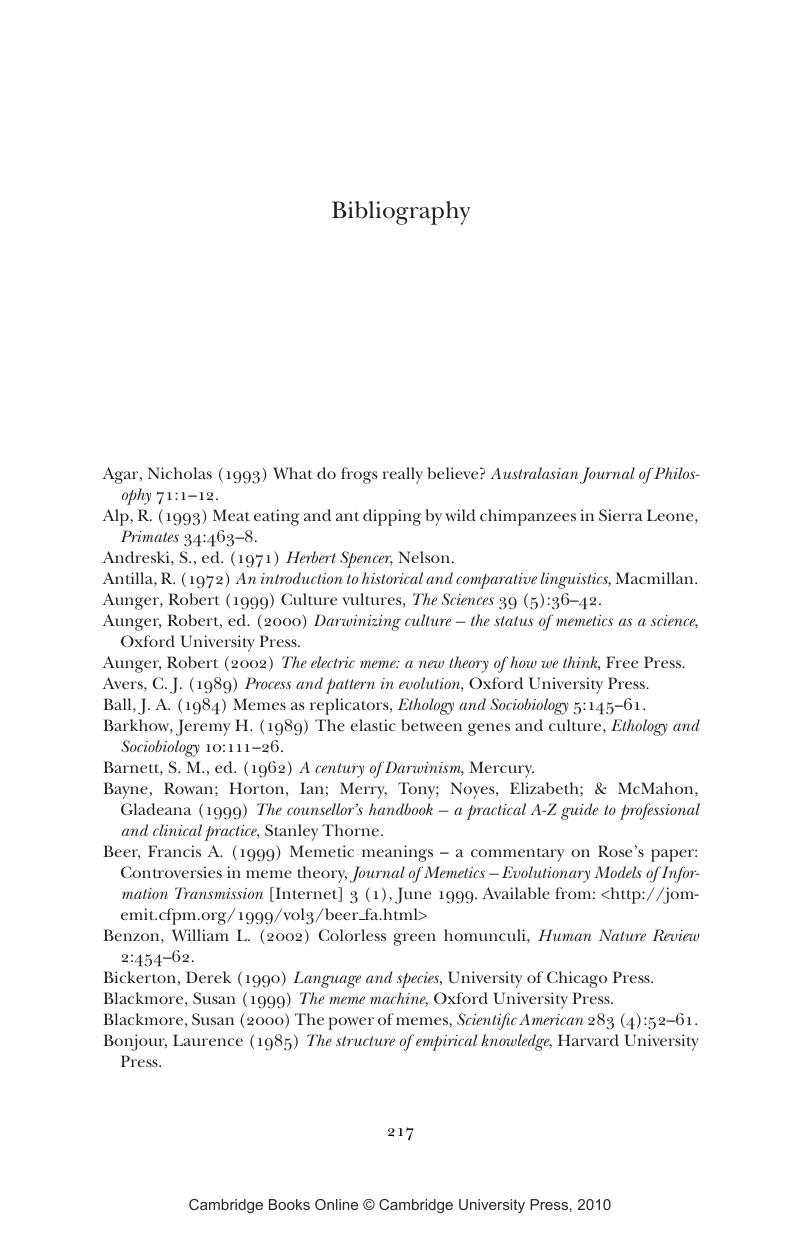Book contents
- Frontmatter
- Contents
- 1 Introduction
- 2 The Meme Hypothesis
- 3 Cultural DNA
- 4 The Replication of Complex Culture
- 5 Variation
- 6 Selection
- 7 The Story So Far
- 8 The Human Mind: Meme Complex with a Virus?
- 9 The Meme's Eye View
- 10 Early Cultural Evolution
- 11 Memetic DNA
- 12 Memes and the Mind
- 13 Science, Religion and Society: What Can Memes Tell Us?
- 14 Conclusions
- Acknowledgements
- Notes
- Bibliography
- Index
- References
- Frontmatter
- Contents
- 1 Introduction
- 2 The Meme Hypothesis
- 3 Cultural DNA
- 4 The Replication of Complex Culture
- 5 Variation
- 6 Selection
- 7 The Story So Far
- 8 The Human Mind: Meme Complex with a Virus?
- 9 The Meme's Eye View
- 10 Early Cultural Evolution
- 11 Memetic DNA
- 12 Memes and the Mind
- 13 Science, Religion and Society: What Can Memes Tell Us?
- 14 Conclusions
- Acknowledgements
- Notes
- Bibliography
- Index
- References
Summary

- Type
- Chapter
- Information
- The Selfish MemeA Critical Reassessment, pp. 217 - 224Publisher: Cambridge University PressPrint publication year: 2004



